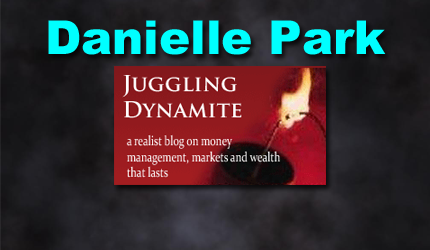July 7, 2025 | Financial Health is a Marathon

Toronto-area home sale prices dropped by 5.4% annually in June–the fifth consecutive year-over-year decline. While lethargy is glaring in condos, detached home sale prices fell the most, with a 6.5% year-over-year drop.
The average Toronto June sale price of $1.01 million represented a 17% decline from the February 2022 peak of $1.21 million.
Sales for the month were 6243 compared with new listings of 19,839, making a 31% sales-to-new-listings ratio–firmly in buyers’ market territory. Sales volumes were 30% below the average of the past decade.
Trends in the Greater Toronto Area and Ontario cottage country are similar and worse.
Vancouver prices also fell, with sales down 9.8% year-over-year and 25% below the decade’s average. National home sales data will be released mid-July. We know from the May data that the national average Canadian home price of $691,299 was 15% below the February 2022 peak of $817,000.
When the last US home price bubble burst in 2006, the average home sale price fell by 14% nationally from $305,800 in 2007 to $262,900 in 2009. More inclusive measures, such as the S&P/Case-Shiller index, indicate a 30% fall from the mid‑2006 peak to the depth of the crisis (2008–2009).
Starting prices matter in the end. Unfortunately, from 2007 to 2022, Canadian home prices experienced an exceptional bubble by historical and international standards, and significantly worse than in the United States.
The Canadian home price-to-income ratio is shown below in red since 2000, compared with America in green and the OECD average in blue.
 This overshoot suggests that Canada could well be in for a deeper and more protracted real estate contraction than the one America experienced in the 2006-10 downturn, and the harshest since the early 1980s when inflation-adjusted Canadian home prices fell by 25–35% in many parts of the country (1981 to 1985).
This overshoot suggests that Canada could well be in for a deeper and more protracted real estate contraction than the one America experienced in the 2006-10 downturn, and the harshest since the early 1980s when inflation-adjusted Canadian home prices fell by 25–35% in many parts of the country (1981 to 1985).
Asset bubbles burst; it’s what they do. And since people tend to increase their risk exposure and debt while prices are inflating, the busts end up being magnified and contagious.
As prices start falling, financial trauma spreads and the markets that saw the most froth see the harshest corrections. The Wall Street Journal reports that The Worst Housing Market in America is now Florida’s Cape Coral. It was also one of the worst during the 2006-2010 downcycle, when prices there dropped by 60%.
Every week, I speak with Canadians who are now struggling to sell their properties in previous hotspots, such as Canada, Florida, and Mexico. All are complaining about the negative carry resulting from increasing property taxes, insurance, and interest rates. See, Home prices are falling — don’t expect property taxes to follow suit.
An increasing number are unable to hold on; consumer insolvency trustees are busy (Scott Terrio posted about this on LinkedIn this week).
 The masses typically overlook bubble hallmarks and think that soaring prices are normal. The longer that elevated price inflation lasts, the more people become convinced it’s a permanent condition and that mean reversion will never happen.
The masses typically overlook bubble hallmarks and think that soaring prices are normal. The longer that elevated price inflation lasts, the more people become convinced it’s a permanent condition and that mean reversion will never happen.
This applies to the stock market above all else!
The speculative mania of the past five years has been unprecedented, pushing valuations to irrational levels that are three standard deviations above historic norms (four S&P 500 valuation metrics are shown below, courtesy of Advisor’s Perspectives and my partner Cory Venable, dating back to 1900). Orange alert, indeed!
 This extraordinary overshoot has persisted long enough to deceive the masses into believing that this time is different and that historical norms are no longer relevant or prescient regarding the likelihood of negative investment returns over the next decade.
This extraordinary overshoot has persisted long enough to deceive the masses into believing that this time is different and that historical norms are no longer relevant or prescient regarding the likelihood of negative investment returns over the next decade.
In financial matters, ignorance can be bliss before it becomes a nightmare.
Sober assessments require discipline and can be challenging to maintain, but as the saying goes, ‘crazy is as crazy does.’ Pro tip: Financial health is a marathon, not a sprint.
If you have read this and are unsure what it means for your situation, you should seek an independent, unbiased review from a financial expert who is not paid to sell you risk. If you’re unsure where to start, send me a message and I’ll do my best to point you in the right direction.
STAY INFORMED! Receive our Weekly Recap of thought provoking articles, podcasts, and radio delivered to your inbox for FREE! Sign up here for the HoweStreet.com Weekly Recap.
Danielle Park July 7th, 2025
Posted In: Juggling Dynamite
Next: The Next Shoe to Drop »











